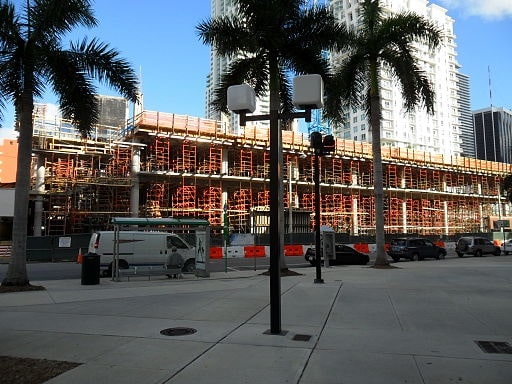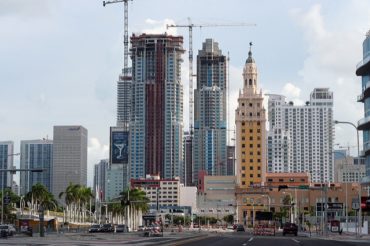
3 April 2016
Multiple news sources are reporting a slowdown in residential condo development in Miami, and elsewhere in South Florida. This could have a positive impact on the office markets in the area. I’ll explain how and why.
First, consider The Wall Street Journal’s recent report on March 29, 2016, “Another Condo Bust Looms in Miami.” The WSJ reported, “Developers have started canceling projects, slashing prices and offering incentives such as private-jet access to spur sales, an ominous echo of the housing crash that pounded South Florida especially hard….In the fourth quarter of 2015, the number of Miami Beach condo transactions declined nearly 20% from a year earlier, while inventory jumped by nearly a third, according to a report from appraisal firm Miller Samuel Inc. The median sales price slipped 6.6%, according to the report.”
Why is this happening at this time? It seems that several factors are converging to lower demand in the residential condo market, not just in South Florida, but around the US. The WSJ noted, “A strong U.S. dollar and weakening local currencies, dropping oil prices and global economic turbulence have crimped the buying power of foreign investors….At the same time, stock-market turbulence has made wealthy locals hesitant to undertake big purchases. Luxury-home prices in 10 global cities analyzed by broker Knight Frank LLP are expected to increase by 1.7% this year, down from 3% growth in 2015….Carlos Rosso, president of condominium development at Related Group, Miami’s largest condo developer, said he sells about 20 units a week in the Miami-Fort Lauderdale area, versus about 100 a week last year.”

While this doesn’t have a direct impact on office markets, it should have an indirect impact, allowing for more new office development. Office developers, for several years during the residential construction boom, have been unable to afford land in the central business districts. Residential developers outbid them, thanks to higher condo prices and higher apartment rents. With a slowdown in the residential sector, and new projects being put on hold or canceled, several of these land sites will drop to more affordable levels, allowing office developers to move forward on new projects.
How will this affect tenants? It will bring more product, more choices, and hopefully lower or stable rental rates. This may be a couple of years away, but it has the potential to help us avoid a sharp turn into a heavily landlord-friendly market. This would be a welcome turn of events for my clients.